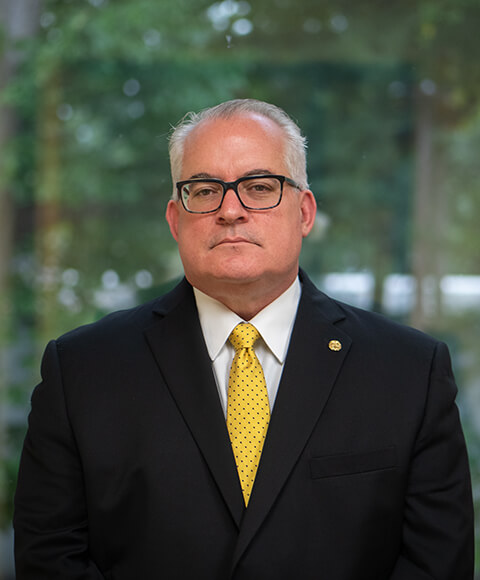Jack Teixeira, the Air National Guard member, recently joined a long list of military and civilian employees who blithely gave away classified documents. A federal judge let Teixeira hire a private attorney with experience in national security cases. Joining the Federal Drive with Tom Temin with analysis of what this might mean, Tully Rinckey managing partner Dan Meyer.
Interview Transcript:
Tom Temin Your firm, just in putting out some ideas on this, said that the judge has allowed him to hire a private attorney. Is that itself remarkable in a case like this?
Dan Meyer Maybe that’s a little overdramatic. I think that you should not read too much into that, meaning how critical the government’s prosecution of him is going to be. Hiring attorney does not mean that you’re armoring up for a criminal defense. Certainly with a case involving classified information, it’s smart for public employees. And he is a public employee, service member is a public employee to have counsel about the classified information aspects of what he’s facing. And that will be equally helpful for him, both if he faces a criminal prosecution and if it’s simply restrained and left at the administrative level. But it does show that he at least is understanding how deep the water he’s waded into is.
Tom Temin Right. Do we know who the lawyer is? And what do we know about that lawyer’s record in these types of cases?
Dan Meyer That lawyer’s not on my Rolodex. And I think that from what I’ve been able to Google, the person does seem reasonably well qualified to give him advice. And so I think that it’s smart to armor up with an attorney, whether it’s administrative or criminal. If it goes to an Espionage Act prosecution, that’s when a defendant needs to think really carefully about who their counsel is. I think this would also apply to a certain former president is handling issues right now, because when you enter the criminal prosecution realm, penalties are much higher when you’re talking prison time. And that’s when you want to think twice about the quality of your legal team.
Tom Temin But this attorney has won hundreds of counts of acquittal on Guantanamo Bay detainees. Does that have relevance here?
Dan Meyer I sort of raised my eyebrows at that. Yes, That shows that there’s a good proficiency with military law. And that’s important in this aspect. As Teixeira is under either Article 32 or Article ten as a service member. So I think for prosecution under the UCMJ or a criminal prosecution in the civilian courts, that’s parallel to that. That would be a good person to have on your legal team, that attorney, if they do not feel comfortable with the classified information aspects of this case, could certainly reach out and get co-counsel to bridge the gap on their expertise. I mean, this line of discussions, not unlike the situation down in Florida with the judge who’s handling the Trump trial. Everybody wants to sort of jump in and say, well, that person is not qualified. The bottom line is when you have a law license, it’s your job to get the client the representation they need. If you can’t bridge the skills with your own skills, you have a gap. So I’m sure that attorney will be smart and reach out and get co-counsel if he or she needs it.
Tom Temin Yeah. This is Michael Bachrach of Manhattan, and he’s the one that’s gotten all of these acquittals. But what is that going to cost, do you think? And how would a guy like Jack Teixeira, who’s not all that sympathetic? I don’t think he’s going to be getting lots of money on go fund me for his defense, maybe pay for some.
Dan Meyer Well, actually, Tom, I’m going to I got an opinion on that one right there. The question becomes, who’s paying for the legal counsel? You know, there’s rules. The bar has rules about people paying for legal services for individuals who were not actual individuals. He may be getting support from groups. There was some murmuring. I haven’t seen it followed up on. Some people thought he was perhaps a whistleblower. I haven’t seen that in the facts. I haven’t seen the evidence of what he was posting and what he was posting about. There was some question about whether he was challenging the Ukraine policy as a National Guardsman from Massachusetts. So there are aspects of that which could lend itself to what’s called campaign funding. And so maybe he will get support from an outside group to do that. And this gets into an area where whistleblowing has been considered sort of a four letter word since the impeachment debate. But you need to be careful about classifying people as not being a whistleblower before you know, all the facts. And the critical question in the Teixeira case is what was his intent in doing this? I think as an investigator, I would want to know, is this sort of boasting that he had access to the information? Was this just trying to be part of an online community? All of those present very serious security concerns. But you want to know what that intent was before you line up the defense and certainly before you go for the prosecution.
Tom Temin We’re speaking with Dan Meyer, managing director of the law firm Tully Rinckey. And that question of whistleblower, I mean, whistleblowers report to specific places if they think there’s wrongdoing. And those don’t mean posting to shadowy groups online. That’s not where any legitimate whistleblower would go. Same thing with Edward Snowden, You know. Well, government afterwards later said, well, maybe the we had to have this debate. This was what one of the intelligence leaders said. But if he had a legitimate whistleblower complaint about wrongdoing, you go to the agency head and then you go to the Office of Special Counsel or whatever, there are places that can handle it. And those are legal procedures just blabbing it to the press or to online. That’s not whistleblowing, really.
Dan Meyer Tom, you’re well-studied on this and thank you for putting that out there, because all federal employees need to understand that this is not the 1970s and you are not Daniel Ellsberg. Rest in peace. He passed away just recently. Right. So the rules coming out of Watergate were just wild, Wild West. And Congress stepped in with the Whistleblower Protection Act and the Military Whistleblower Protection Act. And then eventually President Obama extended it to classified information with a document called PPD 19. And there were statutory amendments that basically said that for the purposes of classified information, which this involved, you cannot be a whistleblower unless you go through the prescribed procedures to the prescribed entities to receive the disclosure. Now, we should also remember for unclassified information under Title five, just everyday corruption, federal employees can still go to the media with that, but you have to have certain permissions. But that’s still a wide open area. It’s dangerous, but it’s not like classified information like the Teixeira case.
Tom Temin Right. And of course, whistleblowing doesn’t necessarily coincide with, well, I don’t agree with our foreign policy, but that doesn’t mean the government is somehow subverting justice or stealing or taking bribes or committing False Claims Act if you’re a company. I mean there are areas here. So I guess the other question is with security clearance and who the military grants these to, how could this case maybe have that rethought?
Dan Meyer So after 9/11, we expanded the number of security clearances. Things got out of control. Ok, there’s no question about it. It became sort of sexy to use, probably not a great term, but it’s true sexy for federal administrators and managers and leaders and a lot of cleared people underneath them. So the security state expanded and we classified far more positions that probably had to be classified. We started classifying every piece of information on a federal computer system. So this meant that more and more people had to have access to classified information. And the way these systems or even closed systems, the way they’re open within their close contacts, that means that very junior people could sometimes have access to information they did not need to see. And I saw this in spades in the intelligence community. I’ve always tried to stay away from classified information I don’t need to see. But I had coworkers who would get in early just to go watch the latest videos, etc., etc. And that’s just a prescription for disaster. So they know they need to dial back. I think you’ll see a reclassification of positions. I think you’ll see a downgrading positions. Even more importantly, I think you’ll see a beefing up of monitoring, internal monitoring within the federal process. We move to continuous evaluation, continuous monitoring. So the old standard six, eight, ten year background investigation periodicity is slowly going away and people will be monitored on an ongoing basis. And if your profile is problematic, you will come up for review before your coworker whose profile is not. To give it in an unrelated field, I think it’s really fascinating, if you win or lose more than 10,000 in winnings at a casino, there’s an automatic email prompt that goes to your security officer. Now, that didn’t happen ten or 15 years ago. You would have had to report that, but that will go automatically.
Tom Temin Wow. All right. So, yeah, always in flux. This whole domain fair to say.
Dan Meyer Well, that and then also the dissemination of classified information have to kind of think through where they’re putting stuff. The problem with a networked system is that you can get access to it from lots of different places. And I really have questions about why that information was where he could get access to it. You know, within the intelligence community, this is pretty much a locked down process and you have to have an average person wanting to walk it out the door. But once you get outside the intelligence community, it is relatively wide open. And there has been fear of the Defense Department generally within the intelligence community for a long time. Sharing information becomes problematic because, frankly, the Pentagon can be sloppy with classified information.





